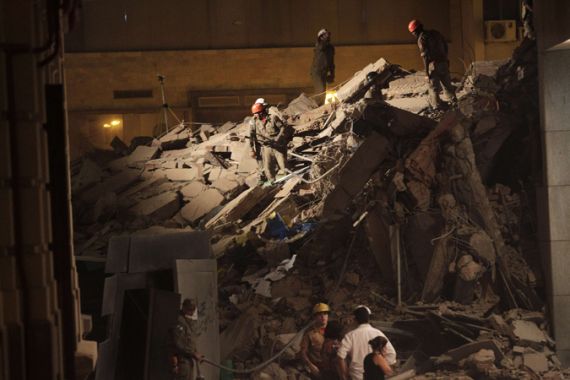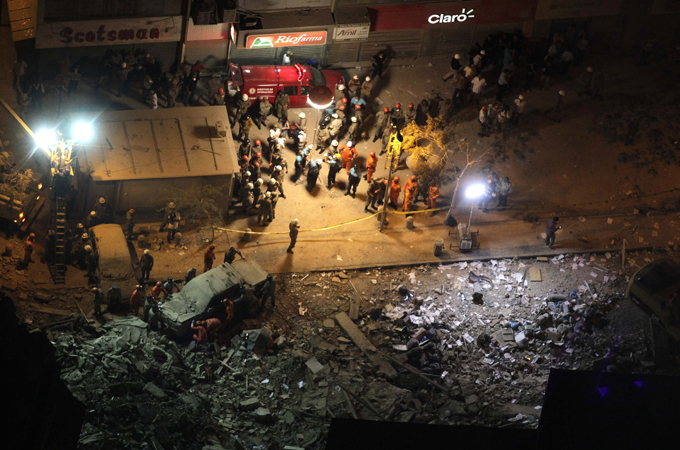Structural failure blamed for Rio collapse
Four bodies found after collapse of three multi-storey buildings in the centre of Rio de Janeiro.

 |
| Electricity to the area was cut following the accident to minimise the risk of fires [Reuters] |
Rescuers have recovered four bodies from the rubble of three buildings that collapsed in downtown Rio.
The buildings, one 20 floors high, collapsed on Wednesday night in a cloud of dust behind the city’s 100-year-old Belle Epoque-style Municipal Theater.
Keep reading
list of 4 itemsAre seed-sowing drones the answer to global deforestation?
Rainfall set to help crews battling wildfire near Canada’s Fort McMurray
The Alabama town living and dying in the shadow of chemical plants
Engineers said work was being done with no permits from city regulators on two floors of the taller building, which could have caused it to collapse and bring the other buildings down.
Rescue teams pulled six people alive from the rubble, but at least 22 people were missing, Rio de Janeiro Mayor Eduardo Paes said in a news conference on Thursday.
“We need to keep working with tranquility so the rescue teams keep up with the search,” Paes said.
The buildings housed offices that had mostly closed for the day and few people were on the normally busy street at the time of the disaster.
Paes said the cause of the collapse could have been a structural failure as a result of building work underway inside one of the buildings. He said there was no gas leak that could have caused an explosion.
‘Structural failure’
Building work was underway on the third and ninth floors that was not authorised by the Rio building commission, said Luiz Antonio Cosenza, head of the local engineers association.
“The most likely scenario was structural failure,” he said.
TV images showed cars covered with concrete and steel rods. Traffic in the area and service in neighbouring subway stations has been suspended, local media reported.
The local electricity distribution company serving Rio de Janeiro also cut power to the area to avert the possibility of fires, given that natural gas could be smelled in the air around the collapse.
Rio de Janeiro is struggling to address concerns over poor infrastructure as it prepares to co-host the football World Cup in 2014, and the Olympic games two years later.
The incident comes months after an explosion apparently caused by a gas leak destroyed a restaurant in the commercial district of Rio, killing three people and igniting concerns over the state of the city’s infrastructure.
In recent months, Rio de Janeiro’s inhabitants have had to deal with unexpected explosions of sewer lines and landslides in some city slums caused by heavy rain and deforestation.